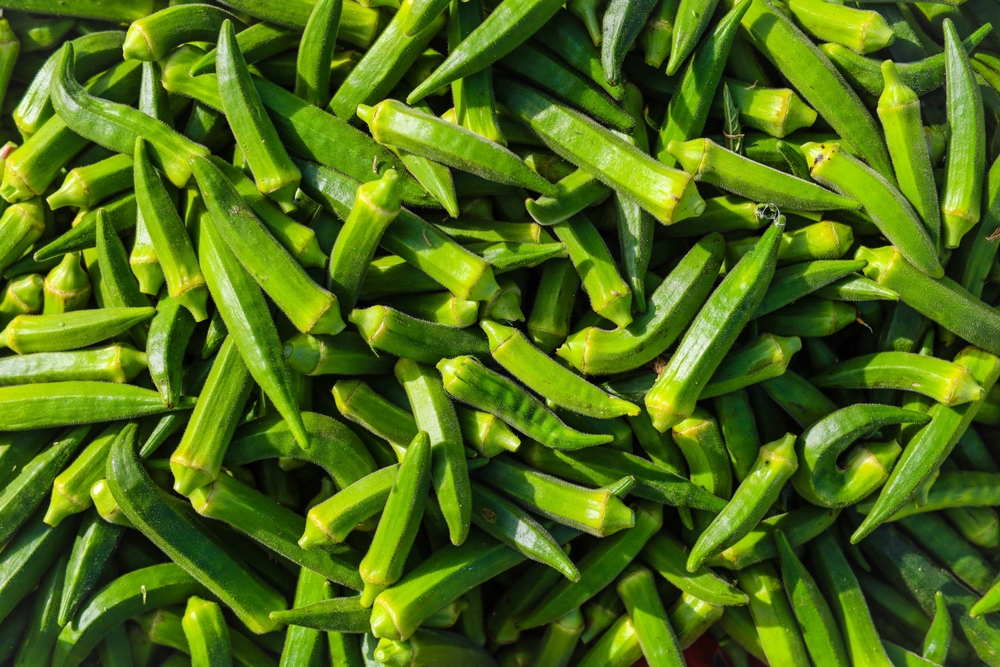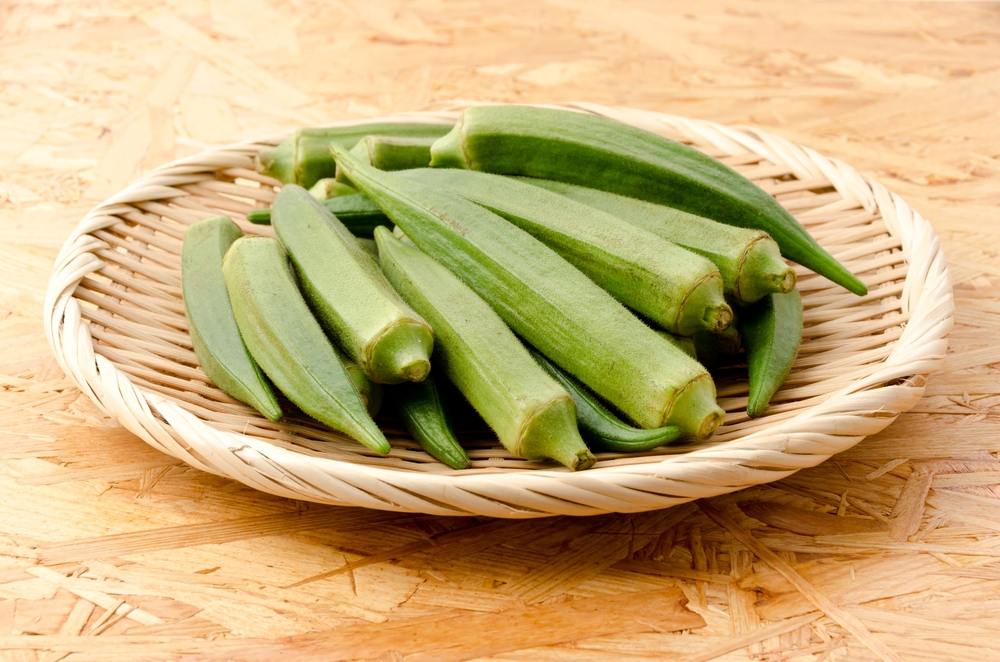[ad_1]
Okra is a staple in many cuisines, including Creole, Brazilian, and Cuban. The food is an edible seed pod that you can eat raw, boiled, sauteed, or pickled. Eating can be challenging for some people because of the characteristic goo that forms when cooking it. It’s not a safety concern but an aesthetic one involving texture. However, it’s not a problem for your dog.
Canines can eat okra in moderation and depending on the form, also benefit from its nutritional value. It has a pleasing taste that absorbs other ingredients in the preparation. However, as with any new food you offer your pooch, some cautions exist.

Benefits of Feeding Okra to Dogs
Okra (Abelmoschus esculentus) is a plant in the mallow family that is low in calories and high in nutrition. A 100-gram serving only contains 33 calories, and nearly 90% is water. It has little fat and about 2 grams of protein. Its carbohydrate content is scant, as is its sugar. However, it does have 3.2 grams of fiber, making it good for adding bulk to your pup’s diet. It’s a rich source of potassium, vitamin C, and calcium.
Cooking okra doesn’t diminish its nutritional value appreciably, although we recommend sticking with a simple preparation method like boiling. Whilst it is usually the unripe seed pod that is eaten, the leaves are also edible. It does have a significant number of oxalates, which could present a risk for bladder and kidney stones. Spinach has more and carrots less for example than okra. However, it should still only be offered in strict moderation.

Risks of Feeding Your Dog Okra
There isn’t a risk of toxicity with okra. The only outstanding concern is a choking hazard if you give the whole pod to a dog. We suggest cutting them into smaller pieces to eliminate this risk. Boiling okra will also soften them to make them easier to chew. The preparation method and other ingredients are the only other factors to watch.
Pickled okra can add too much salt to your dog’s diet. While dogs can handle a reasonable amount, too much can cause health issues. Of course, offering okra from gumbo is another matter altogether since the dish typically contains other problematic ingredients, such as garlic, onions, and hot pepper sauce.
Therefore, you shouldn’t pick out the okra in your Creole dish to give to your dog. It only takes a small amount to trigger an adverse reaction in your pet, particularly if you use powder or dehydrated garlic or onion. There is no antidote for this poisoning—only supportive care to manage the hemolysis or destruction of red blood cells.

Tips for Feeding Your Dog Okra
We recommend giving your dog raw or boiled okra without salt. You should always start slowly with new foods. While canines can digest starch and glucose, some dogs may have issues digesting the relatively high fiber content, leading to digestive upset. This precaution applies to any fruit or vegetable you add to your pet’s diet.
Treats should make up a limit of 10% of your dog’s diet. For a 10-pound dog, that means no more than 27 calories. A 100-gram serving of okra exceeds this amount, so you must cut it back to keep it in line with the other things you give your pup. We recommend doing the math if your pooch is less than ideal on their body condition score.
 Conclusion
Conclusion
Okra can be a healthy occasional addition to your dog’s diet. It’s low in calories and high in nutritional value. However, it still poses a choking hazard, particularly with puppies and small dogs. We recommend cutting the pods into small slices to alleviate this risk. You can give your dog raw or cooked okra, with boiling without salt or seasonings being the preferred cooking method.
Featured Image Credit: Nungning20, Shutterstock
[ad_2]
Source link
